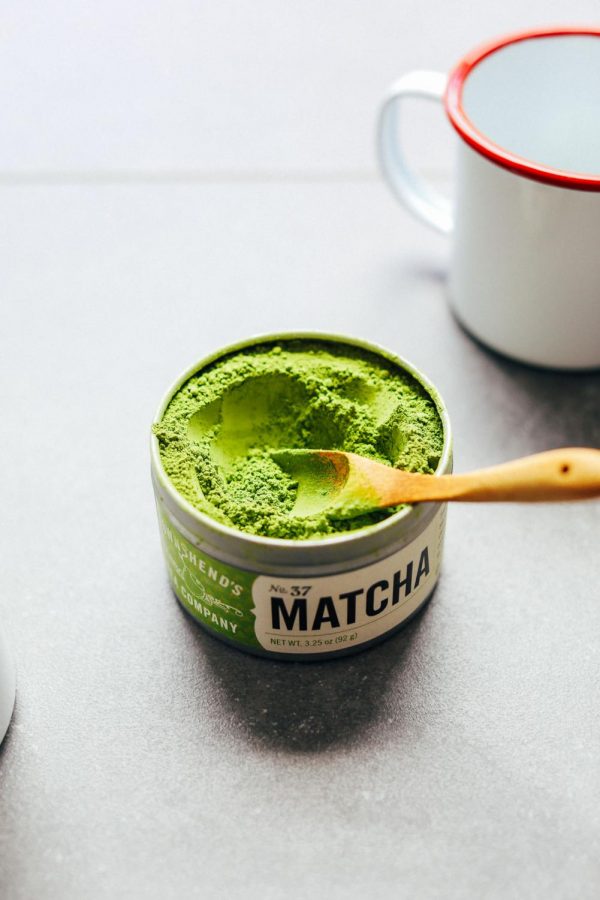What is Matcha?
Matcha green tea powder is the newest “trend tea.”
What is matcha? Is it the green juice you see everyone drinking? Is it the weird green powder that health freaks use in their baking? Matcha, is actually a finely ground green tea powder. The use of matcha goes back to over 900 years ago in Japan. It was originally used in Japanese tea ceremonies because of its many health benefits.
Unlike other green teas, Matcha (depending on the brand) is grown and produced in Japan. The tea leaves are shaded from direct sunlight increasing its production of amino acids and chlorophyll, which then creates the lovely emerald green color. After being harvested the leaves are then carefully stone grounded to produce the fine powder. The biggest difference between Matcha and regular teas is that this tea powder is not strained before consuming, you are actually consuming the whole tea leave!
Matcha green tea has been studied for many generations by all cultures. Surprisingly, matcha tea actually has many health benefits. The benefits include:
Rich Source of Antioxidants
Matcha is filled with many natural antioxidants that help fight against infections in the body. The tea is known to help cleanse the body and blood by maintaining the alkalinity of blood and tissues, protecting the skin from inflammations, and helps the body eliminate harmful build ups.
Healthy Heart
Back in 2011 the American Journal of Clinical Nutrition conducted a study. It was shown that green tea had a significant effect on lowering cholesterol and the blood pressure of the body.
Strengthens the Immune System
With the many antioxidants within matcha the tea is known to provide protection and prevention against various viruses. Also, the catechins found in the tea boosts the metabolism and the reduction of body fat. Other studies have shown that matcha can increase the body’s rate of calorie burning.
Brain Power
Studies have shown that the L-Theanine contained in green teas as well as matcha are known to help stimulate the alpha brain waves. Which then increases concentration and a soothing effect without the drowsy side effect.
With all the good aspects of this new “trend tea,” there are some things to be cautious about. Matcha does contain amounts of caffeine, which could cause allergic reactions. Some reactions are diarrhea, cardiac arrhythmia and irritation of the bowels. Also, matcha (even regular green teas as well) contain trace amounts of lead absorbed from the soil. But, unlike traditional green teas matcha is the whole leaf so most of the lead stays with the powder. Therefore, drink matcha at sensible amounts. Maybe next time you stop at Starbucks pick up a Matcha Tea and enjoy!
Below are some links to delicious recipes that include the fabulous matcha! These recipes are quick and easy to make for “on th go” snacking.
Matcha Energy Balls:
https://pin.it/544gensulwkz2f
Dark Chocolate Matcha:
https://pin.it/lm2zgbwj7xfdxa
White Chocolate Matcha Puppy Chow:
https://pin.it/cmnswmswtzs3jy
Matchq Smoothie Bowl:
https://pin.it/cib5hiixpfq665

Your newest Editor-in-Chief and three year veteran for the newspaper, "The Edge." Making my goals happen on and off the soccer field/basketball court....








